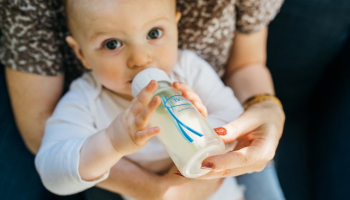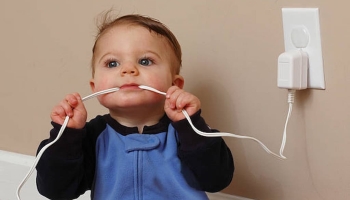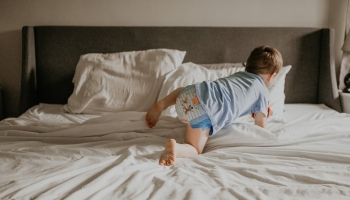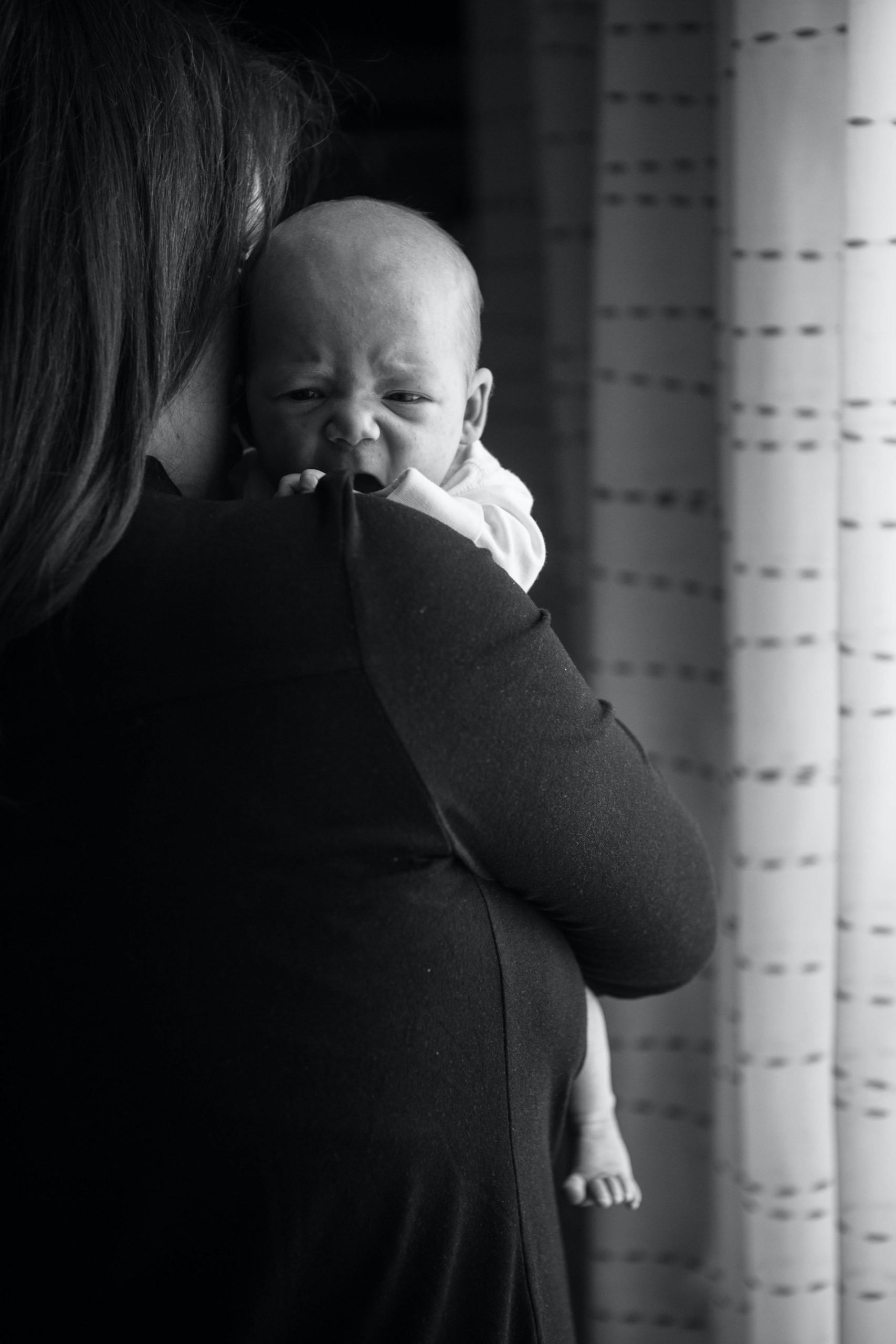
Unless, of course, they’re coming from your new baby, burps aren’t usually a pleasant sound. This signifies that the baby is releasing the trapped air in their tummy, which we all know is excellent. It’s also common for babies to require your assistance with burping up until a certain age, not necessarily because they can’t burp, but rather because it’s difficult to release air when lying down.
A few months down the road, the need to burp becomes less urgent and leaves one wondering when they’ll be able to quit.
At roughly four to nine months of age, most parents can cease burping their infant, although this is essentially a matter of development rather than age. When your baby can sit up, move about, and eat certain solid meals on its own, you may find that you no longer need to burp manually.
Five Signs Your Baby is Ready for You to Stop Burping
The following milestones may help you determine whether or not you can stop burping your baby.
1. When your baby reaches certain developmental stages
When a baby can sit up, many mothers report that they no longer need to burp them. After all, we often burp them to keep them upright after a meal. As soon as they can sit up, we no longer feel the need to hold them over our shoulders or pat them on the back as often.
This doesn’t always indicate that your infant can sit up on their own without any help. It’s common to search for the ability to sit with their hands on the floor or slightly elevated.
When a baby can roll over is another frequent milestone when parents quit burping them. Burping is typically easier with stronger belly muscles as a result of this move
2. When your baby can feed his/herself without any hassle
Is it common for your infant to cry or whine while being fed? You may have noticed that when you were nursing, he would wiggle and whine. There’s a good chance that you took advantage of those moments to cuddle him and burp him.
But lately, you’ve observed that he doesn’t need to burp once when nursing or drinking. He’s stopped pausing or slowing down after a few minutes or ounces.
As an alternative, he’s able to eat continuously. If you try to take the bottle away or stop to give him a burp, he’ll go ballistic. If so, it’s a positive indicator that you can cease burping him, or at least not for as long as before.
3. When your baby prefers to play rather than sit still
Bubbling him for many minutes was not uncommon in the past. He may already be clamoring to get out of your arms so that he may do something else, as it is these days. To burp, he probably doesn’t need somebody to hold him. He’s probably OK with it.
The best approach to evacuate the gas he feels is to play and move about rather than sit still. It’s possible to quit burping if he’s ready to leave your arms after a feeding.
4. When your infant can burp by his/herself
Most babies can now burp on their own, so you may not need to assist them anymore. Just picking him up or shifting him into a different position is enough to get him off on the gas pedal. He won’t burp when you hold him, but he will in a few minutes on his own.
Assuming so, he’s likely willing to forego burping in exchange for your assistance. As long as he’s not upset and nothing comes out, it’s probably OK to hold him for a few minutes to let him burp.
5. When it seems that burping is no longer effective
For the first few months of your baby’s life, burping him might become a habitual routine that you nearly forget to stop. However, things have changed a little in recent times.
He doesn’t spit up as often as he used to, or he can sleep for long periods without feeling apprehensive about the situation. He may not burp after all those minutes of patting and holding. Keep him upright for a few minutes, then cease burping.
Alternatives to Burping a Baby
Try to calm your baby
Many parents say that burping a screaming or cranky infant may be a challenge.
Is it possible to tell whether your baby needs to burp based on their crying? An agitated infant, on the other hand, is a tight, tense baby. And the bubble may have a difficult time leaving.
Just attempt to calm them down for a few minutes while you take a break from feedings and burpings. Sing a lullaby to them, rock them back and forth, and whisper in their ear. It is up to you to determine what will assist your baby relax.
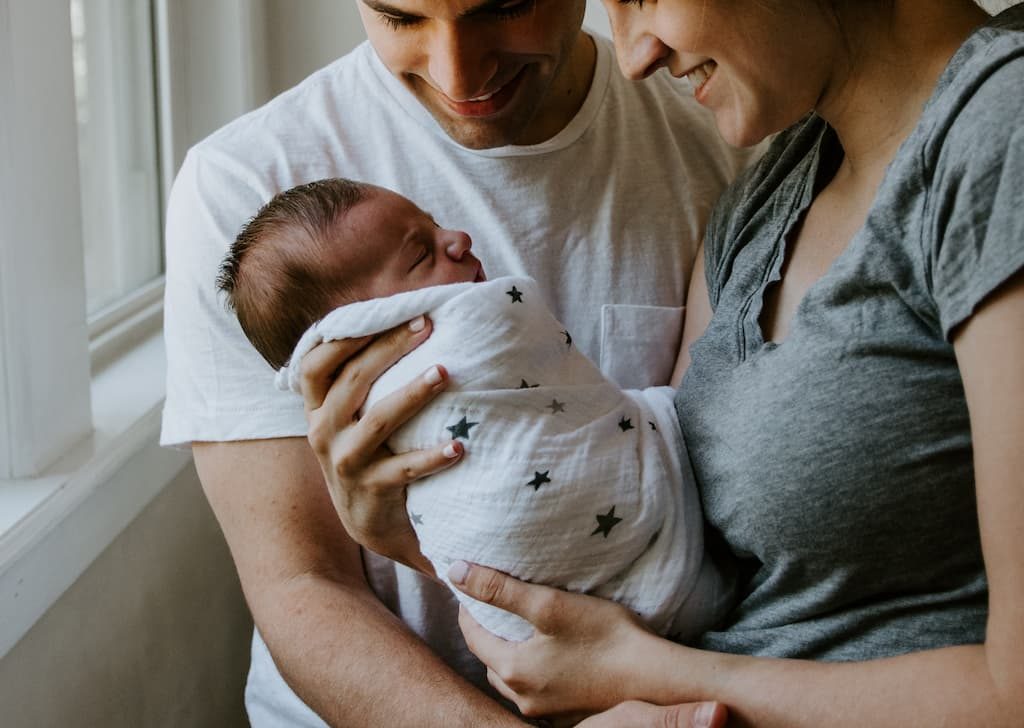
Experiment with various positions
Burping a baby may be done in a variety of ways. However, keep experimenting with other options until you discover one that works. Don’t feel obligated to stay with the other shoulder.
Try cradling your baby on your lap or placing them over your forearm in a football-style grip. If you’re going to use the over-the-shoulder approach, consider holding them a little higher so your shoulder presses against their abdomen. It might aid in the gas’s escape.
Gently lean them forward and backward
Instead of rubbing or patting, you might take a different approach.
It’s easy to get rid of burps if you conceive of them as air bubbles that have gotten stuck in the baby’s stomach.
Rock them back and forth on their backs while keeping their torso erect. They will hurl if you speed up too much!. However, this pulsating motion is excellent for releasing trapped gas.
Bottom Line
No matter how old a baby is, there is no universal rule for when to stop burping them. When it comes to burping, keep in mind that each baby is different and that the impulse to do so fades gradually rather than suddenly. You’ll know when the time is right.



